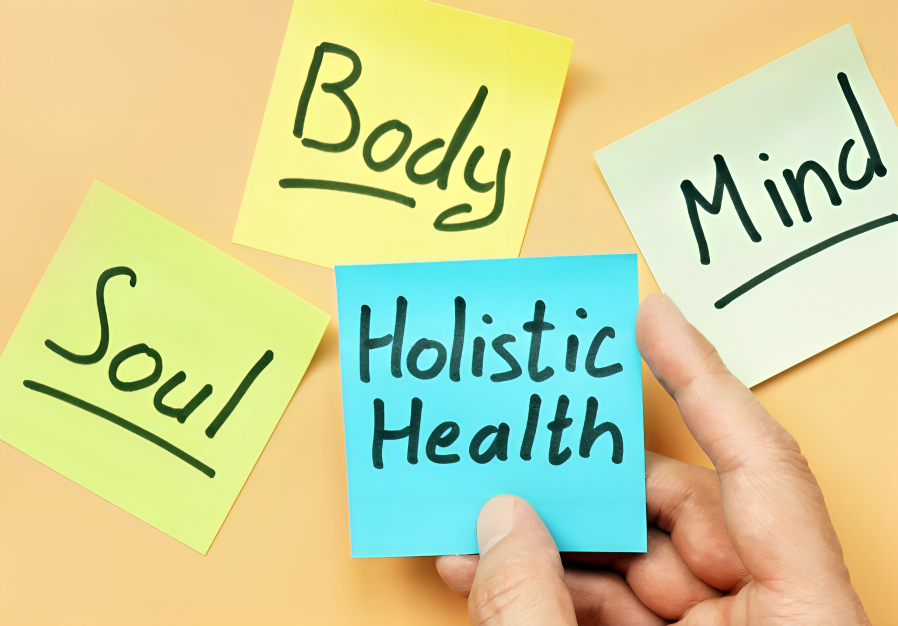In today’s fast-paced world, the concept of holistic health is gaining significant traction. By focusing on the whole person and not just individual symptoms, holistic health aims to achieve optimal wellness through a balanced approach that integrates the mind, body, and spirit. This guide will explore various aspects of holistic health, providing valuable insights and practical tips to help you on your wellness journey.
What is Holistic Health?
Holistic health is a philosophy and approach to healthcare that emphasizes the importance of addressing the entire person rather than just treating specific symptoms or illnesses. This means considering physical, emotional, mental, and spiritual well-being in the quest for optimal health. By looking at the bigger picture, holistic health practitioners aim to identify underlying causes of health issues and promote long-term wellness.
Key Components of Holistic Health
To achieve a state of holistic health, it’s essential to focus on several key components:
1. Physical Health
Maintaining physical health involves regular exercise, a balanced diet, adequate sleep, and proper medical care. Some practices to consider include:
- Nutrition: Eat a variety of whole foods, including fruits, vegetables, whole grains, lean proteins, and healthy fats.
- Exercise: Engage in regular physical activity, such as walking, swimming, yoga, or strength training.
- Sleep: Ensure you get 7-9 hours of quality sleep each night.
- Preventive Care: Schedule regular check-ups, vaccinations, and screenings with your healthcare provider.
2. Emotional Health
Emotional health is about understanding and managing your emotions effectively. Practices to nurture emotional well-being include:
- Mindfulness: Practice mindfulness techniques such as meditation, deep breathing, and journaling.
- Support Systems: Build and maintain strong relationships with friends, family, and support groups.
- Therapy: Consider seeking professional counseling or therapy if needed.
3. Mental Health
Mental health focuses on cognitive functioning and psychological well-being. Strategies to enhance mental health include:
- Stress Management: Develop healthy ways to cope with stress, such as exercise, hobbies, or relaxation techniques.
- Continuous Learning: Engage in activities that stimulate your mind, such as reading, puzzles, or taking up new skills.
- Positive Thinking: Cultivate a positive mindset by practicing gratitude and challenging negative thoughts.
4. Spiritual Health
Spiritual health involves finding purpose and meaning in life, which can be achieved through various practices:
- Meditation and Prayer: Engage in meditation, prayer, or other spiritual practices that resonate with you.
- Nature Connection: Spend time in nature to foster a sense of connection and peace.
- Purposeful Living: Reflect on your values and goals, and strive to live a life aligned with them.
Integrative Practices in Holistic Health
Holistic health often incorporates a variety of integrative practices to support overall well-being. Some popular methods include:
1. Traditional Medicine
Holistic health respects the importance of conventional medicine while also integrating complementary therapies. Always consult with your healthcare provider before starting any new treatment.
2. Alternative Therapies
Many holistic health approaches involve alternative therapies that can complement traditional medicine, such as:
- Acupuncture: A practice that involves inserting thin needles into specific points on the body to alleviate pain and promote healing.
- Chiropractic Care: Focuses on diagnosing and treating musculoskeletal disorders, particularly those related to the spine.
- Herbal Medicine: Uses plants and plant extracts to treat various health conditions.
3. Mind-Body Techniques
Mind-body techniques emphasize the connection between mental and physical health. Some examples are:
- Yoga: Combines physical postures, breathing exercises, and meditation to promote overall wellness.
- Tai Chi: A form of martial arts that focuses on slow, deliberate movements and deep breathing.
- Biofeedback: Teaches you to control physiological functions, such as heart rate and muscle tension, through feedback from monitoring devices.
Conclusion
It is a comprehensive approach to wellness that considers the whole person, addressing physical, emotional, mental, and spiritual aspects. By incorporating various practices and integrating traditional and alternative therapies, you can achieve a balanced and fulfilling life.
Are you ready to start your holistic health journey? Connect with our experts to receive personalized guidance and support tailored to your unique needs.
—
By following these principles and practices, you can take meaningful steps toward achieving holistic health and living a more balanced, healthy, and fulfilling life.














